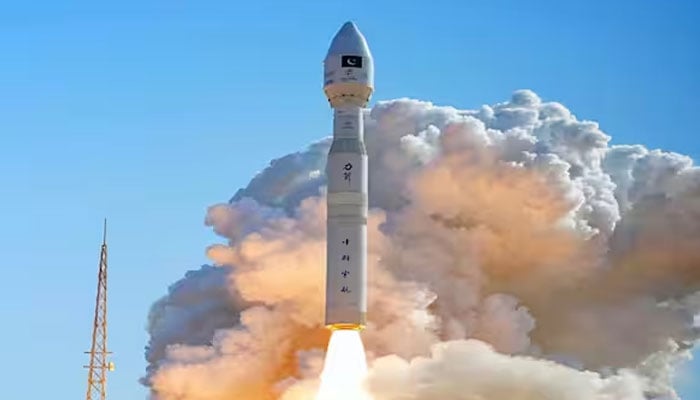
In a significant development, Pakistan has successfully lifted off its first-ever hyperspectral satellite into orbit, marking a major step forwards in advancing national objectives from agriculture to urban planning.
On Sunday, October 19,2025, the country’s space agency, SUPARCO, announced the “successful launch” of the H1 satellite from northwestern China’s Jiuquan Satellite Launch Centre.
With its cutting-edge capabilities, the HS-1 satellite will be able to provide a range of benefits because of its advanced technology.
In agriculture, the HS-1 satellite will be able to identify slight chemical or material changes and offer high-resolution data to support correct farming.
Moreover, it will be able to track crop health, soil moisture and irrigation patterns, HS-1 will enhance yield estimation by 15-20% sustaining food security.
With this launch, the country aims to improve national capacities across different fields, including environmental monitoring, precision agriculture, disaster management, and more.
Speaking to Dawn, SUPARCO chairman Muhammad Yousuf Khan stated, “The data from the Hyperspectral Satellite is poised to revolutionise agricultural productivity, bolster climate resilience, and enable optimised management of the country’s vital natural resources.”
Taking to X (formerly Twitter), @ForeignOfficePk shared: "This achievement also highlights the long-standing collaboration between Pakistan and China in the peaceful exploration of space and its application for socioeconomic progress."
The Foreign Ministry underscored the mission’s role in progressing socioeconomic development. According to SUPARCO, H1 will become fully operational by December.
Meanwhile, the EO-1 and KS-1 satellites, which were launched earlier this year, are already fully functional in orbit.















